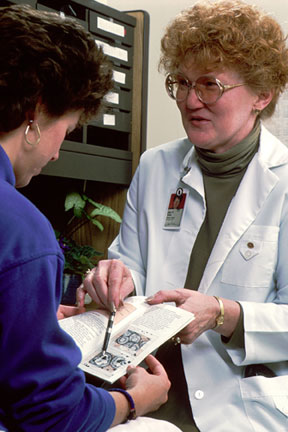
The large increase in the numbers of children surviving cancer has been hailed as one of the great successes of this nation’s investment in biomedical research. Many children who otherwise would have died within weeks or months of a cancer diagnosis are now living longer, with life expectancies sometimes extending into adulthood. However, it is becoming increasingly clear that extending lifespan and preserving quality of life for survivors will depend on screening for, and the managing of, the potential long-term effects of therapy.
Because childhood cancer survivors often lack information about the treatments they received and the long-term health implications of those treatments, researchers at Texas Children’s Cancer Center and Baylor College of Medicine’s Center for Collaborative and Interactive Technologies in Houston, Texas, in conjunction with the Children’s Oncology Group (COG), are developing an interactive internet resource, called Passport For Care (PFC).

 NCI NewsCenter
NCI NewsCenter NCI Budget Data
NCI Budget Data Visuals Online
Visuals Online NCI Fact Sheets
NCI Fact Sheets Understanding Cancer Series
Understanding Cancer Series
